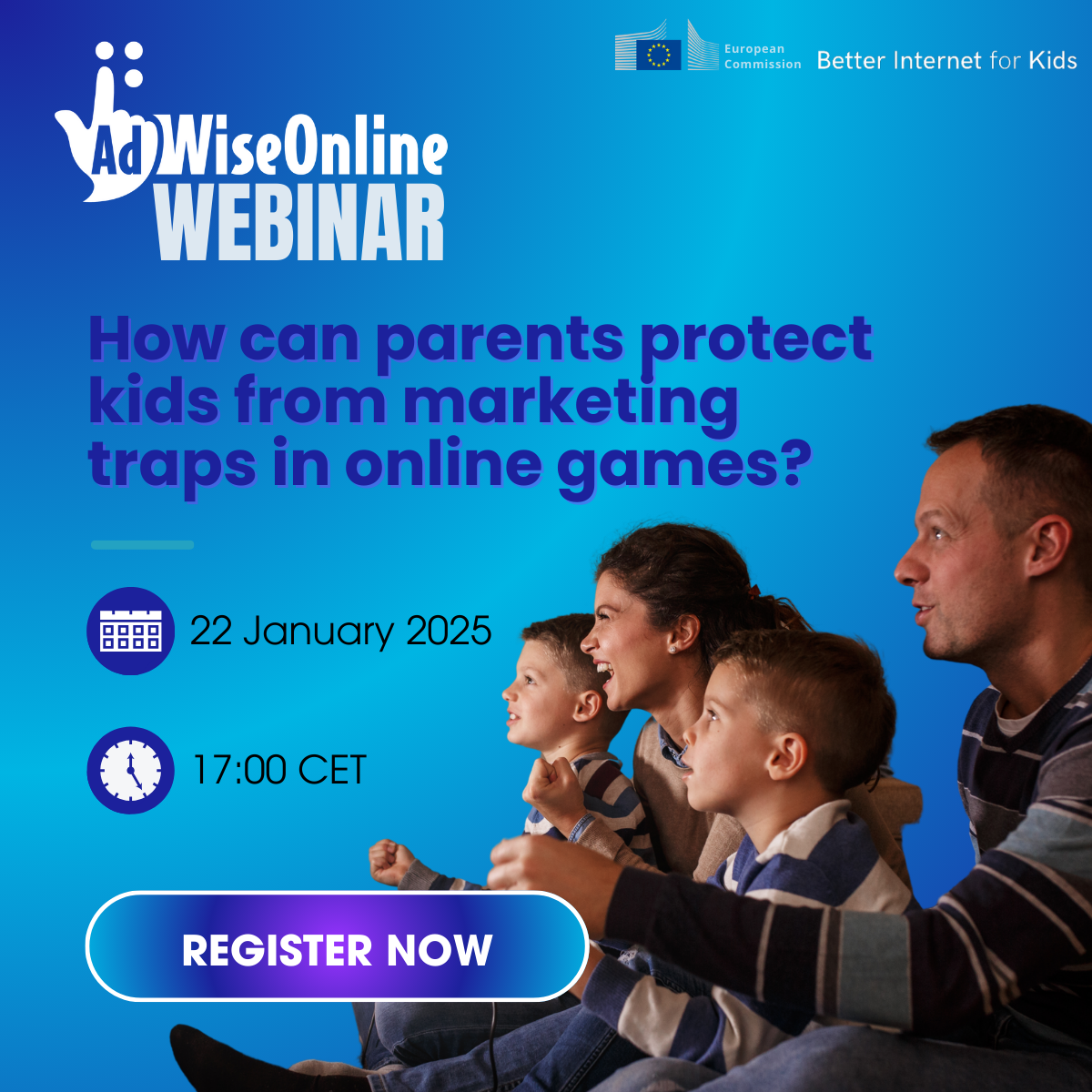
Madrid, 15 January 2025. The European Commission in collaboration with the European Consumer Centres network and the Safer Internet Centres (SIC) network have organised a new free online seminar on 22 January at 17:00 under the title: How can parents protect kids from marketing traps in online games? With a duration of 60 minutes, it will provide an overview of persuasion tactics and digital marketing practices commonly used in online games, on social networks or on the Internet. To attend, interested parties simply register via a short online form.
The speaker will be Gareth Cort, an online safety consultant and expert who works regularly in schools with young people, parents, carers and educators to raise awareness and develop skills around online safety, as well as positive and healthy use of technology. He is also regularly involved in national and European initiatives developing educational materials. Gareth Cort is a primary school teacher with a degree in Psychology from the University of Surrey (UK).
About AdWiseOnline
AdWiseOnline is a European initiative that aims to protect children and young consumers in digital environments by raising awareness of manipulative digital marketing practices. It aims to increase young people's understanding of how digital marketing and online advertising works and their rights as young consumers.
This campaign is carried out in collaboration with the European Commission's Directorates General CONNECT (Communication, Content and Technology) and JUST (Justice and Consumers), the Safer Internet Centres Network (SIC) and the European Consumer Centres Network (ECC-Net). All this, in the framework of the Better Internet for Kids (BIK) project. A European Commission project adopted in May 2022 to ensure a better Internet for young people and to guarantee the protection, respect and autonomy of children in the new Digital era, and in line with the European Digital principles.
Day: 22 January
Time: 17:00 to 18:00 hours
About dark patterns
These are interfaces and techniques aimed at influencing people's behaviour and decisions when interacting with websites, apps and social networks, so that they make decisions that are potentially detrimental to the protection of their personal data.
About loot boxes
Loot boxes are those objects, functionalities or virtual processes included in video games that require prior payment and allow the player to obtain - at random - prizes or rewards consisting of character upgrades, opening of new areas or stages of the video game, accessories, etc.
About FOMO (Fear Of Missing Out) Tactics
Marketing technique based on generating a sense of urgency or scarcity in the consumer to pressure them to make an impulse purchase.
On excessive microtransactions
Virtual in-game purchases that unlock specific features or grant the user special abilities, characters or content through the use of micropayments.
Source of information: EU.